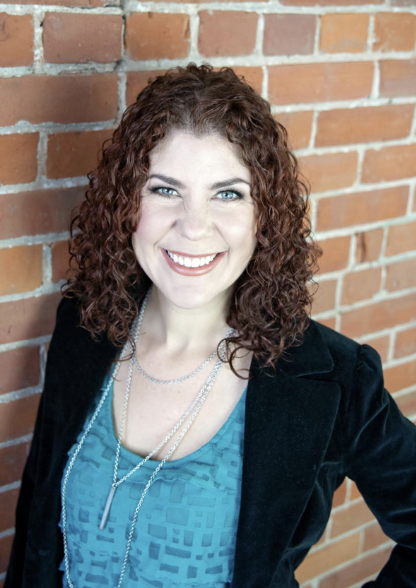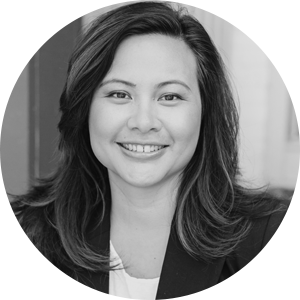How to decide between a fixed and variable mortgage?
QUESTION #1: In the current interest rate environment, what advice are you giving to clients trying to decide between a fixed-rate or a variable-rate mortgage?
Singh reminds her clients that the best decision comes when you balance your risk tolerance and personal situation with current and potential market conditions. “Often, I’ll ask theoretical questions, like whether the household budget could handle fluctuating monthly mortgage payments.”
The answer to these questions helps Singh determine the best-suited options for her clients. For instance, if a household requires predictable, predetermined costs, then she’ll focus on finding the most competitive fixed-rate mortgage. “This type of mortgage is better since the monthly payment won’t change throughout the mortgage term,” explains Singh.
For households that don’t mind taking on a bit of risk, a variable-rate mortgage can be a good option, particularly when interest rates are dropping. However, choosing a variable rate in a fluctuating rate environment is only a good option if you have a strategy on how to repay the mortgage debt, explains Romana King, author of House Poor No More, winner of the Excellence in Financial Journalism (EFJ) Book award.
“In a falling interest rate environment, opting for a variable-rate mortgage means you are banking on rates going lower,” explains King. “This gamble means you want more of your monthly payment to go towards repaying your principal debt. To accelerate this strategy, consider taking on a mortgage that allows for consistent prepayments. Even an extra $100 per month can help reduce the interest you pay and the time it takes to become debt-free.”
What if variable rates are higher than fixed rates?
As of September 2024, many homeowners facing a mortgage renewal were confronted with this exact situation: interest rates are dropping but, at the time of their renewal, variable rates were higher than fixed rates. The dilemma was whether or not to lock in with the lower, fixed-rate mortgage or gamble on a variable rate in anticipation of further interest rate cuts.
“This is a tough scenario and the right answer boils down to your budget and risk tolerance,” explains King.
When to pick a fixed-rate mortgage
For risk-averse households, particularly those already feeling the pinch, the best option could be locking-in with a fixed-rate mortgage.
“The current lower rate allows you to keep your monthly mortgage payments low and allows you to readjust and, hopefully, find room in your budget to start aggressively tackling debt repayments,” says King.
She adds that problems occur when households start hoping for rock-bottom variable rates in an effort to make their mortgage payments fit their budget.
“We may see incremental reductions in mortgage rates,” says King, “but don’t expect mortgage rates to fall to historical lows like we saw half a decade ago.”
When to pick a variable-rate mortgage
For those with wiggle room in the household budget and a higher risk tolerance, a variable-rate mortgage is a good option.
You may pay slightly more at the start of your mortgage, but if rates continue to drop, you could maintain your monthly mortgage payment but repay more of the home loan debt. “This is ideal for those who want to reduce the overall interest paid on their mortgage and get out of debt, faster,” explains King.
Singh points out that there is another advantage of selecting a variable-rate mortgage; it gives you the flexibility of benefitting from lower rates (should rates continue to drop in 2024 and 2025) while minimizing the cost of opting out of this gamble.
As a variable-rate mortgage holder, If you choose to break your mortgage, your penalty is the equivalent of three months of interest. Do the same with a fixed-rate mortgage and your penalty is based on a proprietary calculation known as the Interest Rate Differential (IRD) — this penalty can climb dramatically to $10,000 or $30,000 or even $50,000 in added costs.
How much home can you afford?
Whether you're hunting for a new home or looking to refinance your mortgage, knowing how much your new loan might cost you is critical. Use our handy mortgage calculator to help you understand what your payments could look like.
Get StartedDisadvantage of variable-rate mortgages
QUESTION #2: What are the downsides to a variable-rate mortgage in a falling interest-rate environment?
In a falling interest rate environment, it makes sense to choose a variable-rate mortgage. That’s because a variable mortgage can take advantage of anticipated lower rates.
For that reason, there are relatively few downsides when selecting a variable-rate mortgage when interest rates are dropping.
However, in the current environment, where variable rates are higher than fixed rates, opting for a variable-rate mortgage means understanding how to minimize overall interest payments.
“Selecting a variable-rate mortgage can still be a good idea, as long as you have a plan to reduce the overall debt, such as making pre-payments,” says King.
Disadvantage of fixed-rate mortgages
QUESTION #3: What are the downsides to a fixed-rate mortgage in a falling interest-rate environment?
It can be beneficial to lock in rates during a falling interest rate environment; however, timing when to lock in can be tricky.
Lock in too early and you end up with a higher monthly mortgage payment, and paying more in interest. But hold out for the lowest possible rates and you may miss your window (forcing you to lock in at higher rates or opting for unfavourable terms).
To help you decide, King suggests following the golden rule when it comes to breaking your mortgage. “In most situations, it only makes sense to break your mortgage (and pay the penalty) if you can get a rate that is 2% lower than what you are currently paying,” explains King.
Based on this strategy, variable-rate mortgages need to drop to 2.7% before fixed-rate mortgage holders should consider paying the penalty to switch. (Although, King concedes that homeowners could justify paying to switch even after a 1% decline in rates, but only if the math makes sense. King advises that homeowners seek guidance from a mortgage professional before taking this step.)
“This golden rule is a guideline — a starting point,” says King. She adds that anyone seriously considering switching their mortgage should always calculate whether the savings justify the costs.
“Work with a mortgage professional who will watch the market and crunch the numbers to help determine if it makes sense to break your mortgage,” says Singh. The idea is that the new, lower rate and the interest savings should be large enough to help you recoup the penalty you pay to get the better rate.
Unexpected vet bills don’t have to break the bank
Life with pets is unpredictable, but there are ways to prepare for the unexpected.
Fetch Insurance offers coverage for treatment of accidents, illnesses, prescriptions drugs, emergency care and more.
Plus, their optional wellness plan covers things like routine vet trips, grooming and training costs, if you want to give your pet the all-star treatment while you protect your bank account.
Get A QuoteDoes amortization length matter?
QUESTION #4: For homeowners relatively new to the mortgage process, should a longer amortization impact the decision between a fixed- or variable-rate mortgage?
Yes, the length of your amortization should influence your decision between a fixed- or variable-rate mortgage, explains Singh. “The longer your amortization, the more times you’ll have to revisit the criteria involved in selecting a mortgage.”
King adds that understanding how interest is calculated on a home loan can help with this decision. “At the start of any mortgage, homeowners will pay the most interest. Over time the interest portion of your monthly payment starts to decrease because less money owed means less interest paid.”
For relatively new homeowners — those with mortgages amortized over 20 or more years — the key is to find a way to repay more of the principal debt at the start of your mortgage term.
“This can be very hard to do,” says King, “particularly with stressed and stretched household budgets.”
One strategy is to negotiate a mortgage that gives you the flexibility to make pre-payments, explains King. For instance, on a $500,000 mortgage amortized over 20 years, you could get a five-year fixed rate at 4.7% or a five-year variable rate at 5.7%. One option is to select the variable-rate mortgage and hope rates decline. The other option is to select the five-year fixed rate, but pay the monthly amount as if you had selected the five-year variable rate mortgage. Take this approach and you could be mortgage-free almost a year sooner and save almost $20,000 in interest payments, explains King.
Should you split your mortgage between fixed- and variable-rates?
QUESTION #5: When is it a good idea to split your mortgage: a portion in a fixed-rate mortgage and a portion in a variable-rate mortgage?
Homeowners should consider splitting their mortgage — a portion in a fixed-rate mortgage and a portion in a variable-rate mortgage — when flexibility and risk avoidance are competing needs.
The main benefit of splitting your mortgage is that it mitigates interest rate volatility. If you anticipate a rate increase, a split mortgage means that the portion in the variable-rate mortgage may increase, but the portion in the fixed-rate mortgage will not.
However, there are some big drawbacks to splitting your mortgage. First, you could see any potential budget advantages of the split mortgage eaten up if rates rise quickly — as we saw in 2023.
Another disadvantage is that breaking a split mortgage can be costly, as it requires you to pay two different penalties — one to break the fixed-rate mortgage and one to break the variable-rate mortgage.
If you do opt to split your mortgage, keep the term for both mortgages the same, explains Singh. “If you don’t then you may face only a portion of your mortgage up for renewal, forcing you to pay a penalty to break the entire mortgage contract, or renew at less favourable terms.”
Are the answers to mortgage questions different for single-income households?
QUESTION #6: Does being a single-income household play a factor in whether or not to pick a variable or a fixed-rate mortgage? Why? Why not?
When asked, Singh always responds by asking her clients two questions:
- Are you in a position to play the market?
- Do you have sufficient fallback funds — liquid assets that can help you through unexpected expenses?
Whether it’s one income paying the mortgage or two, the answers to these two questions can guide a homeowner into making a better mortgage renewal choice.
“Honestly, if you can’t answer ‘yes’ to both these questions, then a fixed-rate mortgage is a better choice for you.”
King agrees and adds that single-income households always end up taking on extra risk. “There isn’t another income earner to pick up the pieces should you face a catastrophic financial setback. For that reason, single-income households need to pay attention to the downside of any mortgage decision and prioritize ways to minimize worst-case scenarios.”
Most important factors impacting a mortgage decision
QUESTION #7: What are the biggest factors to consider before selecting a fixed or variable mortgage?
As Singh explains, the biggest factors are you and your budget. “Consider your family’s budget, your short and long-term needs and goals, as well as your risk tolerance. Then work with a mortgage professional who will guide you to the best option based on your budget and needs.”
Quite often, Singh will start a conversation with a client about getting the most competitive mortgage rate, but once she starts to understand their needs and goals, she’s able to point out the problems and steer them to better products and solutions.
Singh is also keen on transparency. “Ask your mortgage broker questions,” she says and ask to see the evidence on why they are recommending a certain product or lender. “They should have no problem discussing the advantages, showing you the math and explaining the potential risks.”
King agrees. “Most people get stuck on the mortgage rate, and for good reason, since this will dictate how much of your income is spent on housing costs. But your risk tolerance, your current and future goals and your strategy for paying back debt are all factors that help your mortgage broker find the best home loan rate and terms to suit your needs.”
Bottom line
When it comes to financing your property purchase there isn't one right answer. The decision between fixed and variable mortgages depends on a few general factors, including individual risk tolerance, personal circumstances, and current market conditions.
Keep in mind that the best mortgage isn't just about negotiating the lowest rate. How much interest you pay and how tight your budget will be also depends on the amortization length, portability and flexibility and pre-payments options.
In general, fixed-rate mortgages are recommended for risk-averse households, allowing for budget adjustments and focused debt repayment. Fixed-rate mortgages offer predictable payments, making them suitable for those who require stable costs. On the flip-side, variable-rate mortgages offer flexibility and potential savings if rates drop, but require some wiggle room in the budget (and the appetite to rejig spending and saving priorities). This makes variable-rate mortgages advantageous in falling interest rate environments but only for those comfortable with creating a strategy for debt repayment.
— with files from Romana King
Sponsored
You're 5 minutes away from the best mortgage
Searching for your perfect mortgage shouldn’t be hard. Homewise is an online brokerage that will negotiate on your behalf with more than 30 big banks and other lenders, completely free, and it only takes five minutes to apply.
If you're in the market for a new mortgage, or if you're looking to refinance before interest rates rise again, go to Homewise now and answer a few simple questions to get started.









